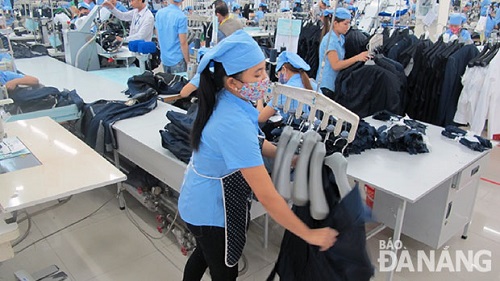Local businesses pay little attention to international trade agreements
Some bilateral trade agreements between Viet Nam and foreign partners will either be signed or come into effect before the end of this year.
The Association of South-East Asian Nations Economic Community (AEC) will be officially established on 31 December 2015, 5 years ahead of schedule. A free trade agreement (FTA), signed on 29 May between Viet Nam and the Eurasian Economic Union (EEU), is expected to come into effect later this year, and the EU-Viet Nam FTA and the Trans-Pacific Partnership agreements are likely to be implemented soon.
 |
| Workers at the Hoa Tho Textiles and Garments Company |
Over the past 2 years, the Da Nang People’s Committee, the local Department of Industry and Trade, and the city's branch of the Viet Nam Chamber of Commerce and Industry (VCCI) have held numerous meetings with local businesses to help them clearly understand these international trade agreements.
However, only around 60% of the total guests invited actually attended the events, and many attendees left the events early after they had received their copies of any distributed documents.
According to the latest survey, about 90% of the leaders of the city’s businesses said that they do not care about the international trade agreements because their businesses are small in size and face shortages of capital. Therefore, the success of their operations will largely depend on the market situation.
Some local businesses which earn a total of between 5 million USD and 20 million USD each year from exports are satisfied with what they have now and do not want to expand their consumer markets. The main reasons seem to be that they hesitate to put money into seeking new customers, and they have yet to develop any international integration plans of their own.
Whether they like it or not, the city’s businesses will need to boost their international integration to further develop after the international agreements come into effect. Therefore, they will have to learn about the detail of the agreements in order to make best preparations for international integration. In addition, they will have to give top priority to upgrading their production equipment and their technologies in order to improve the quality of their products and increase their competitiveness in international markets.




